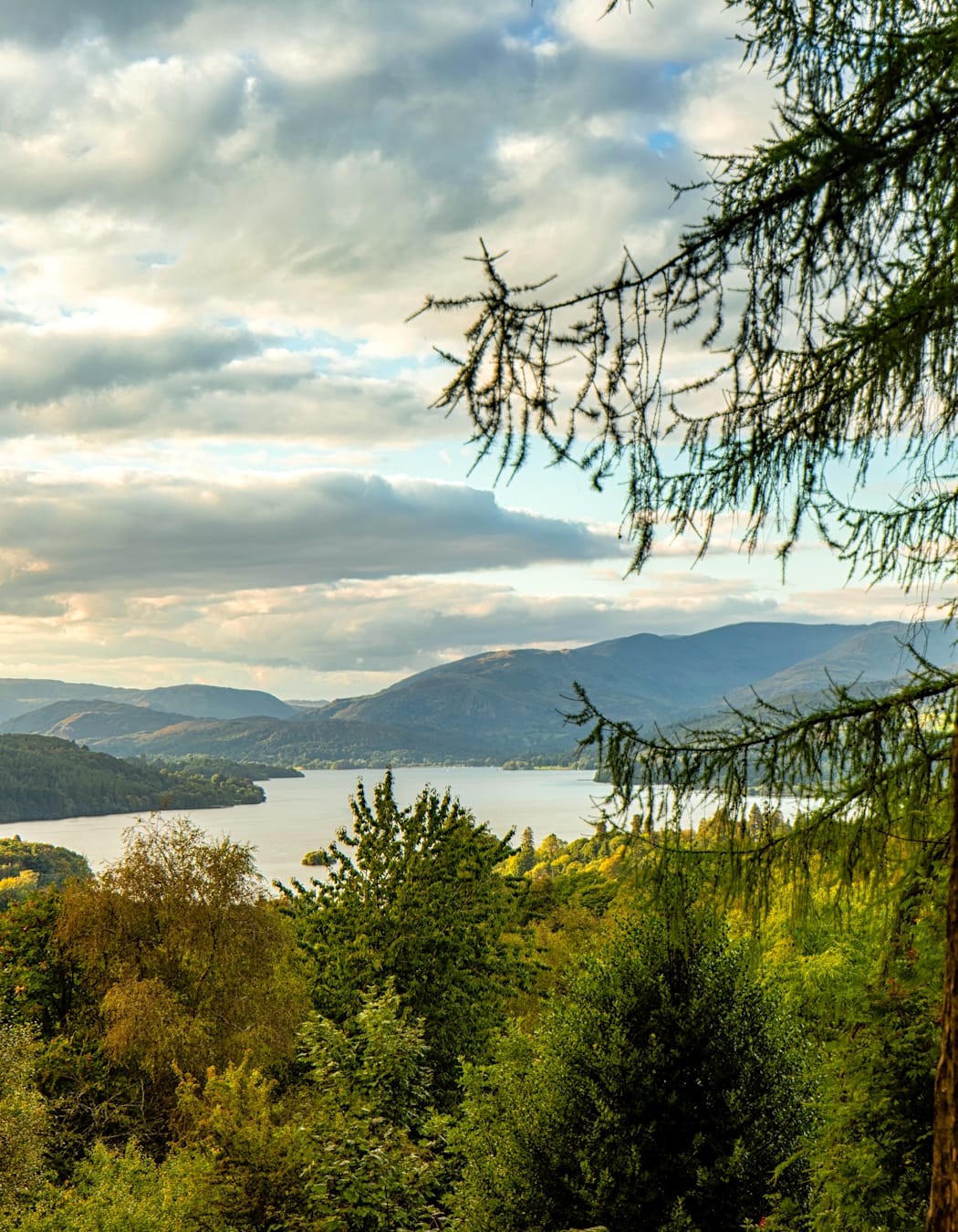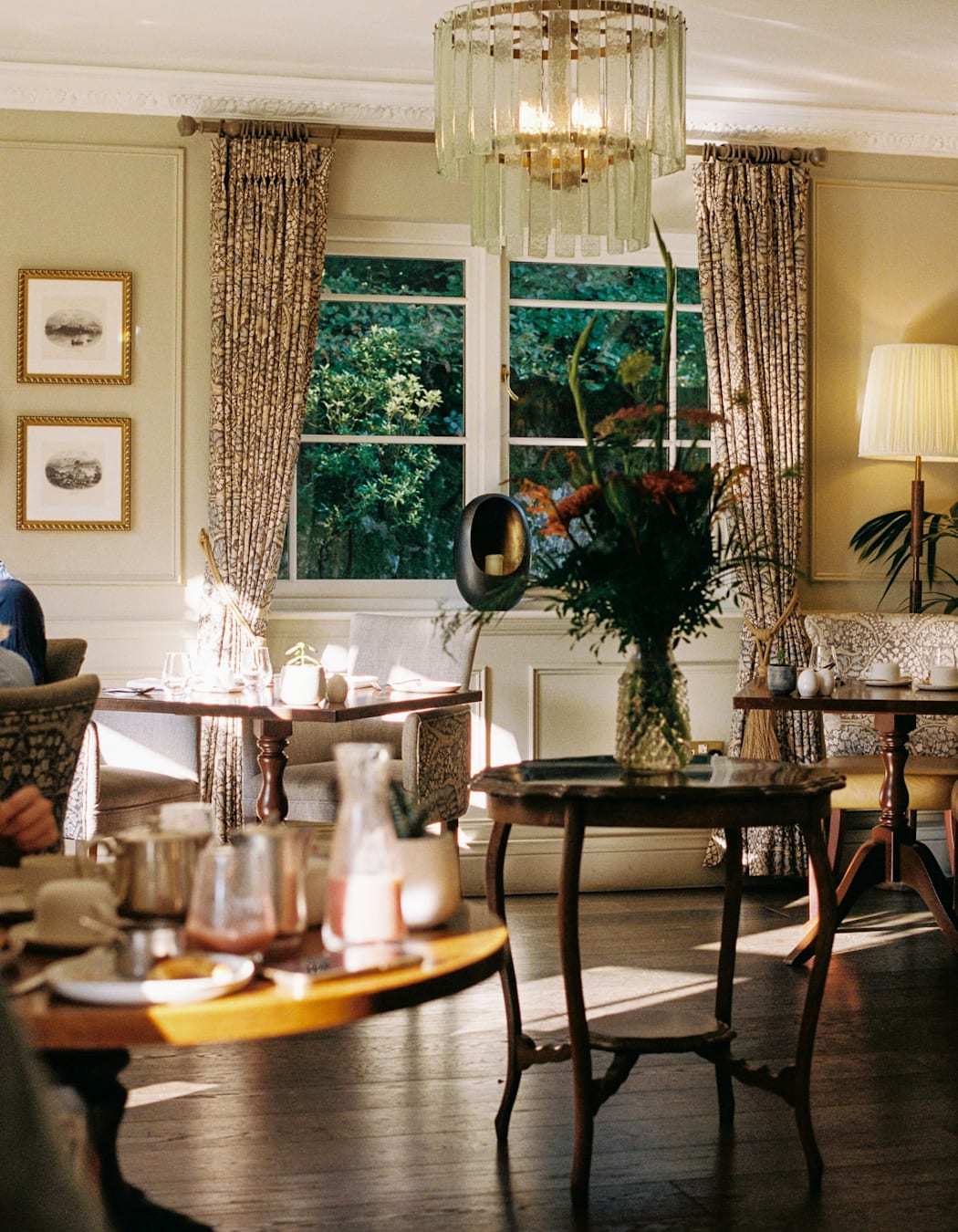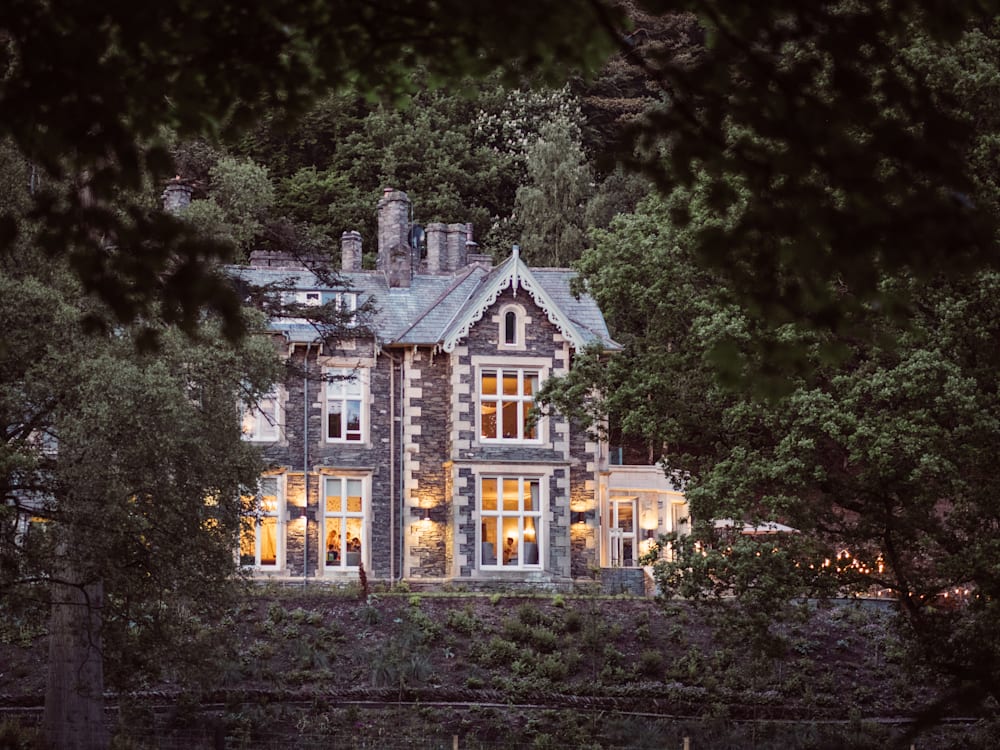For many, the Lake District is the Eden that inspired Wordsworth, with its promise of head-clearing hikes onto mountain-circled escarpments, which plunge refreshingly into inky waters. If that’s you with your walking boots and your compass, then good for you.
For others, like myself, who visited as a child with parents who’d turned deaf ears to Disneyland, memories of the Lake District are more likely to involve arguments over parking spaces, tea in styrofoam cups and rain hammering on caravan roofs.
It’s why I’m happier than most to report that, thanks to Linthwaite House, Rothay Manor and Forest Side, some rather grown-up style and sophistication can be found in the Lake District.
And when you’ve got England’s most scenic lakes and its 10 tallest mountains (all described with marvellous eloquence by guidebook author and Lakes hero Alfred Wainwright), it’s no mean feat that this trio of hotels have become destinations in their own right.
But we had to get there first. Navigating the narrow lanes of the Lake District, appropriately named things like Totter Bank or Hubbersty Head, is a sure way to sharpen the senses after hours of cruise control on the M6. Here, in a region known as the Southern Lakes, it’s not water that first greets you but fields, dry-stone walls and woodland.
This lack of lake might explain why, on arrival at our first hotel, Linthwaite House, near Bowness, we walked straight past the entrance. Not that it’s inconspicuous or badly signposted; in fact it’s quite charming, framed by ivy under a gabled roof. No, it’s because just after the entrance beyond a wide terrace is a gaping hole where the landscape should be.

Putting two and two together, we ignored the hotel doorway in favour of said terrace, at which point the earth seemed to fall away and we glimpsed the great length of Lake Windermere far below, stretching out before us.
Heck with the walking boots, we figured; the scenery has come to us. We would’ve headed out to explore sooner, too, if we weren’t distracted by the herd of rare black sheep (even they, like the hotel, were rather stylish), or if we hadn’t stopped to show our 10-month-old the giant chess board. Then we were introduced to the hotel’s private lake, with its little wooden skiff.
This is the UK’s most visited national park, I hear you say. Tell me about the tarns, the fells! Well, listen, we’re not the only guests reluctant to leave the comfort of Linthwaite House. Every year the resident mother duck marches her newborn chicks down from the lake, parading them in front of the hotel as if to say thanks for all the feeds.
Speaking of feeds, our extended arrival meant it was too late for anything except dinner — and maybe the best excuse of all for staying put. Henrock, the hotel’s restaurant, is helmed by Simon Rogan, he of L’Enclume fame. Simon’s farm is in the nearby Cartmel Valley, supplying Henrock with venison and other delights. After meals here you’re unlikely to be able to move, let alone want to.
And so the boots remained in the boot, such are the delights of Linthwaite House. No matter: with day two upon us, we were determined to make the most of it. Book eight in Wainwright’s eight-volume Lake District guide focuses on the outlying fells, and mere minutes from the hotel is one he recommends: Brant Fell.
‘A visitor to Bowness with time to kill, or wishing to escape from the throngs of day-trippers, cannot do better than walk up Brant Fell and, in solitude, enjoy its fine prospect of Windermere or a simple scramble on its inviting summit rocks.’
So we fastened our daughter into a carrier backpack and set off. Almost embarrassingly, within 20 minutes or so we’d reached the top, the reward far outweighing the exertion. Surely fellwalking isn’t this easy? We resolved to fill the afternoon with another, more challenging hike. But that was before we were scheduled to check in at our next hotel…

Rothay Manor
Rothay Manor is a handsome Regency-era manor house at the edge of the village of Ambleside. As soon as we set foot inside, it was clear that the hiking boots had served their purpose for the day. The only exercise we felt like doing here was to lift cocktail glasses to our lips, or to climb into our room’s freestanding tub.
Because what a room. Ours featured a turquoise-tiled fireplace that popped from whimsically mediaeval Melissa White wallpapers, and a wrought-iron balcony with views of the mist-laden hills. In fact, each room, either in the more modern pavilion annexe or the original manor, has been individually and expertly styled. Expect a Victorian palette (pale green, taupe) that will lull you to rest whether you’ve hiked Helvellyn or not (us clearly falling into the latter camp).
Downstairs, more exit snags. The dining room ramps up the Victoriana and is deliciously austere — all sage, clay and maroon — complimenting the earthy tones of the upper fells outside. As our daughter napped, we read the newspaper and sipped IPAs in the lounge, happy to admire the surroundings through windows rather than at close quarters.
We were going nowhere else today.
Okay, day three, and with the minor ache of Brant Fell easily set right by eight hours in our king-size bed, we were determined to finally challenge ourselves on a moderate hike. Hotel staff have put together a neatly-presented booklet of ‘Rothay Rambles’, five hikes of varying difficulty you can do straight from the door.
We opted for the circular walk up to Lily Tarn and weren’t disappointed. An initial scramble, quite hard-going up a winding path, leads onto the mildly sinister Todd Crag, with its outcrop of spiky rocks that look like fangs. From here, an amphitheatre of mountain peaks surrounds you, and it feels good to be alive. Then there’s the tarn that gives this walk its name, so strange and isolated that it’d probably look more at home on one of Jupiter’s moons than in the Lake District.
After the summit we found the stony path that continued to Loughrigg How and along the River Rothay to Ambleside, whose string of pubs and cafés we bypassed in favour of a return to the Manor. Here we ordered G&Ts on the patio, our socks steaming and our legs tender from exertion. Finally we could call ourselves ramblers.
After a satisfying (and this time well-earned) soak in the tub, we dined on Ulverston lobster and Cumbrian beef, and for afters a white chocolate bavarois worthy of a Wordsworth sonnet.
Speaking of Romantic poetry, on day four we adjourned to our next hotel, Forest Side, a swoon-inducing Gothic mansion just outside Grasmere, the lakeside village that Wordsworth called home.

Forest Side
And while I fully endorse strolls around the lake, excursions into Grasmere to visit the poet’s former cottage, and treats from Sarah Nelson’s still-operational Victorian gingerbread counter, there is a magnetic pull to Forest Side, too, that is hard to resist.
This fairy-tale pile, named after a line from a Wordsworth poem, has been restored from dilapidated ruin. It looms over its tree- and fern-hugged grounds, affording dramatic panoramas from rooms (ours was in the attic) kitted out with every comfort.
The hotel’s beating heart, though, is the restaurant. Star chef Paul Leonard is putting on quite a show with ingredients foraged from the gardens, caught along the Lake District’s thin stretch of coast, or carefully chosen during game season.
And, magically, it tasted, well, how you expect the Lake District to taste: there were foraged mushrooms cooked in smoked bone marrow, quail’s yolk and beef broth. There was partridge roasted on the crown with salsify, date and grilled leaves. There were beetroots cooked all day in their own juices with cod roe, yoghurt and juniper. It was a comprehensive tour of the Lakes that didn’t require me to take a single step. Probably it deserves its own guidebook series, or a Michael Palin documentary.
There were other highlights to our Lake District visit: a stroll through Keswick for an eyeful of Derwentwater; lunch at a sailing club overlooking Ullswater; a nailbiting drive over the Kirkstone Pass, the highest point in the park reachable by car.
But as you’ll notice, none of them involved so much as a map, let alone a compass or hiking boots. We had come to the Lake District expecting to conquer the fells, but instead three standout hotels conquered us.
Wainwright wrote: ‘The precious moments of life are too rare, too valuable to be forgotten when they have passed; we should hoard them as a miser hoards his gold, and bring them to light and rejoice over them often.’
I’ll be doing just that, and not just in thrall to the hills and the valleys. My visit this time was just as memorable for the meals I ate, the service I received and the beds I slept in.
Discover more of the great outdoors with our beginner’s guide to England’s national parks…



